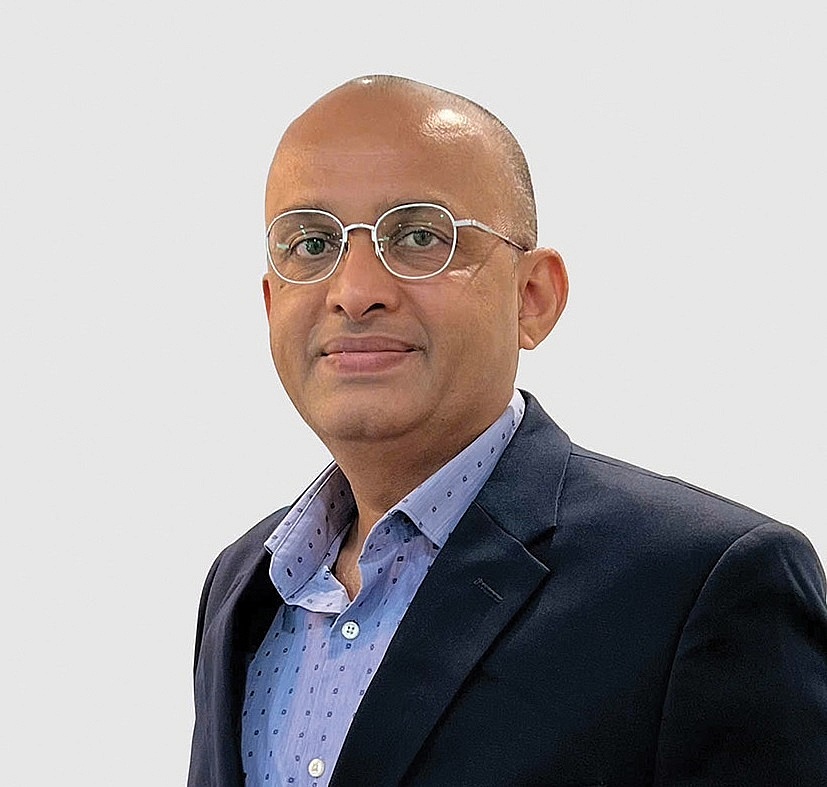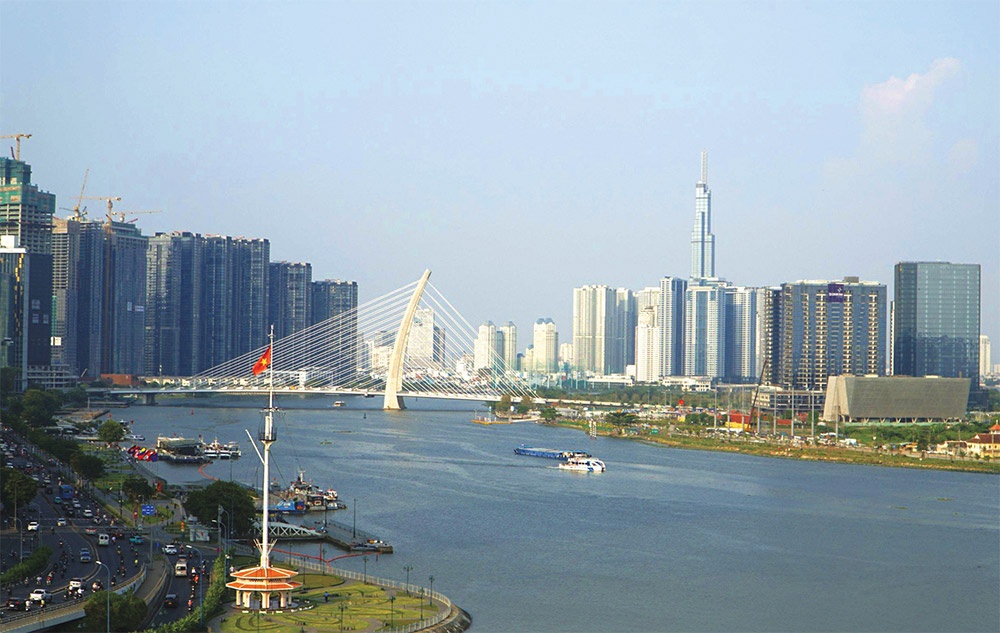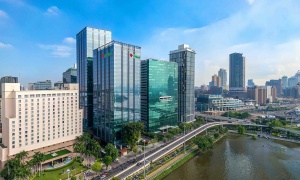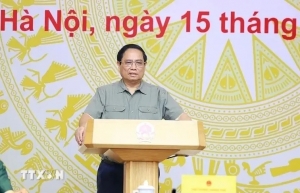The route to a world-class international finance centre
A robust business investment environment is essential for attracting both regional and international investors. Ho Chi Minh City’s financial ecosystem is designed around three main components: the monetary market and banking system, the capital market, and the commodity derivatives market. These components are crucial for creating a diversified financial ecosystem.
 |
| Rizwan Khan, managing partner at Acclime Vietnam |
Currently, Ho Chi Minh City is a financial hub in Vietnam, with a well-established banking system. The city hosts numerous domestic and international banks, providing a wide range of financial services. However, there is still room for improvement in terms of modernising banking infrastructure and increasing the adoption of digital banking solutions.
To strengthen the banking sector, Ho Chi Minh City needs to invest in advanced banking technologies to improve efficiency and security, encourage the adoption of digital banking services to enhance accessibility and convenience for customers, and implement clear and supportive regulations to foster innovation and protect consumers.
The metropolis is home to the Ho Chi Minh Stock Exchange, which is the largest stock exchange in Vietnam. The capital market has seen substantial growth, with an increasing number of listed companies and a rising volume of trading activities. Despite this progress, the market still lacks diversity in financial instruments.
To expand the capital market, Ho Chi Minh City should introduce a wider range of financial products, such as corporate bonds, exchange-traded funds, and derivatives, to attract different types of investors. Additionally, enhancing transparency and disclosure standards will build investor confidence, and creating incentives for more companies to go public will increase market depth and liquidity.
The commodity derivatives market in Ho Chi Minh City is still in its nascent stages. While there are some existing platforms for trading commodities, the market is not yet fully developed. Establishing a robust commodity derivatives market would provide more investment options and help manage risks associated with commodity price fluctuations.
To develop this market, Ho Chi Minh City needs to set up modern and efficient trading platforms for commodity derivatives, develop a robust regulatory framework to ensure fair and transparent trading practices, and educate market participants about the benefits and risks of trading in commodity derivatives to promote active participation.
In addition, Ho Chi Minh City can leverage its unique time zone to participate in the global cycle of financial activities. During the hours when major financial centres like New York, London, and Tokyo are closed, Ho Chi Minh City can attract idle capital. Investors looking to trade or manage their portfolios during these off-hours (of major financial hubs) can turn to Ho Chi Minh City’s financial markets.
Financial institutions in Ho Chi Minh City can offer services that cater to global clients, ensuring that transactions and trading can occur around the clock by leveraging different shifts and time zones. By aligning its operations with the global financial market cycle, Ho Chi Minh City can facilitate seamless cross-border transactions and investments, making it an attractive hub for international financial activities.
To support this, Ho Chi Minh City should invest in technology that supports after-hours trading and ensures smooth operations during global market overlaps. Forming partnerships with financial centres in different time zones can facilitate continuous trading and investment flows. Additionally, creating financial instruments that cater to investors looking to trade during off-hours, such as extended trading sessions or overnight investment products, will be beneficial.
Finally, ensuring that regulations support 24-hour financial activities, including flexible working hours and robust cybersecurity measures, will be crucial.
Innovating beyond tradition
Embracing technological innovation is essential for the evolution of the financial sector. Vietnam should lead the way in digital transformation by promoting fintech startups and integrating blockchain, AI, and big data analytics into financial services. Ho Chi Minh City can position itself as a fintech hub by supporting incubators and accelerators that nurture disruptive startups. Synergies between traditional financial institutions and fintech enterprises can catalyse the development of novel financial products and services, enhancing the city’s competitive edge.
To develop a sustainable financial centre, Ho Chi Minh City should prioritise niches that leverage its unique advantages. Given the challenges of competing with established centres following traditional models, Ho Chi Minh City can aim to become the fintech hub of the region.
From 2013 to 2023, Vietnam saw significant investments in fintech, with $1 billion in payment startups and almost $500 million in financial services. This highlights the sector’s growing dynamism. Currently, Vietnam hosts over 260 fintech startups, offering services such as digital payments, alternative finance, wealth management, and blockchain technology.
According to the 36th GFCI report in September 2024, Ho Chi Minh City scored 609 points in fintech, ranking 100th out of 116, up four places and six points from the previous report. Compared to financial centres in the region, Ho Chi Minh City ranked lower than Jakarta (94th), but higher than Manila (101st) and Bangkok (102nd).
The core of this financial market should be fintech. The city needs to form a vibrant startup community to promote the fintech market. This includes establishing a fintech hub with dedicated spaces, buildings, and ecosystem complexes.
There needs to be a mechanism to entice capital, ready to invest in developing the financial market and fintech centre. It is also necessary to develop new business models such as digital banking and fintech testing licences.
However, market access limitations exist, particularly for payment intermediary services and peer-to-peer (P2P) lending. These services are not fully covered under World Trade Organization commitments, leading to regulatory uncertainties. For instance, payment intermediary services require ministerial approval, which can delay investment processes. Similarly, P2P lending lacks a clear legal definition and specific regulations, creating challenges for both local and foreign investors.
The government announced in 2020 that it is preparing a draft decree on a controlled experimental mechanism for fintech activities in the banking sector, which is well-known in other countries as a sandbox. Accordingly, the government will allow fintech investors to provide services in specific areas in Vietnam within a definite time frame. After the testing period, the investor will receive approval from the State Bank of Vietnam to provide full services across the entire country.
However, the draft decree has yet to be passed, and further guidance from the government is expected. To foster growth and attract investment, Vietnam needs to establish comprehensive regulations that provide clarity and assurance for investors in these emerging fintech areas.
 |
| Photo: Le Toan |
Strategic factors for growth
Sustainability is increasingly integral to the financial industry. Vietnam should embed environmental, social, and governance criteria into its financial policies and practices. Promoting green finance and sustainable investment can attract socially responsible investors. Ho Chi Minh City can lead by example, implementing sustainable practices within its financial district, such as promoting green buildings, renewable energy usage, and supporting projects with positive social and environmental impacts.
In 2021, the government enacted the National Green Growth Strategy for 2021-2030, with a vision towards 2050. This strategy includes incentivising credit policies for green projects, as introduced by the State Bank of Vietnam. As Vietnam transforms this strategy into actionable plans, banks and businesses are increasingly promoting loans and investments in green growth projects, setting the stage for sustainable economic development.
By offering tailored green loans, banks can draw in investors keen on supporting sustainable finance initiatives, thereby fostering a more environmentally responsible financial ecosystem.
Besides that, human capital development is also a paramount factor, necessitating substantial investment in education and vocational training programmes. Ho Chi Minh City, with its plethora of universities and educational institutions, can emerge as a nexus for financial education. Offering specialised curricula in finance, economics, and business management can attract a diverse talent pool, fostering a robust pipeline for the financial sector.
Additionally, there is a need to develop professional training and education in fintech, as Vietnam currently lacks comprehensive programmes in this area. Establishing fintech studies and degrees will equip the workforce with the necessary skills to support the growing fintech ecosystem. In addition, ICT education will help to develop a robust ecosystem underpinning fintech and other startups.
Moreover, strengthening international alliances is indispensable for building a regional and international financial centre. Vietnam should actively engage with global financial institutions, participate in international financial forums, and seek membership in global financial organisations.
Ho Chi Minh City can host international financial summits and conferences, attracting industry luminaries and thought leaders. These events can serve as platforms for knowledge exchange, networking, and showcasing the city’s potential as a financial epicentre.
By leveraging these multifaceted advantages, Vietnam and Ho Chi Minh City can maximise their potential and ascend as prominent players in the global financial landscape, establishing a robust regional and international financial centre.
 | Riverfront Financial Centre a new landmark in Ho Chi Minh City Riverfront Financial Centre has opened in Ho Chi Minh City, becoming the most modern office building in the southern business hub. |
 | PM leads steering committee on formulating regional, international financial centre project Prime Minister Pham Minh Chinh has signed a decision on the organisation of the Steering Committee on formulating the project on building regional and international financial centres. |
What the stars mean:
★ Poor ★ ★ Promising ★★★ Good ★★★★ Very good ★★★★★ Exceptional
Related Contents
Latest News
More News
- Hermes joins Long Thanh cargo terminal development (February 04, 2026 | 15:59)
- SCG enhances production and distribution in Vietnam (February 04, 2026 | 08:00)
- UNIVACCO strengthens Asia expansion with Vietnam facility (February 03, 2026 | 08:00)
- Cai Mep Ha Port project wins approval with $1.95bn investment (February 02, 2026 | 16:17)
- Repositioning Vietnam in Asia’s manufacturing race (February 02, 2026 | 16:00)
- Manufacturing growth remains solid in early 2026 (February 02, 2026 | 15:28)
- Navigating venture capital trends across the continent (February 02, 2026 | 14:00)
- Motivations to achieve high growth (February 02, 2026 | 11:00)
- Capacity and regulations among British areas of expertise in IFCs (February 02, 2026 | 09:09)
- Transition underway in German investment across Vietnam (February 02, 2026 | 08:00)

 Tag:
Tag:



















 Mobile Version
Mobile Version